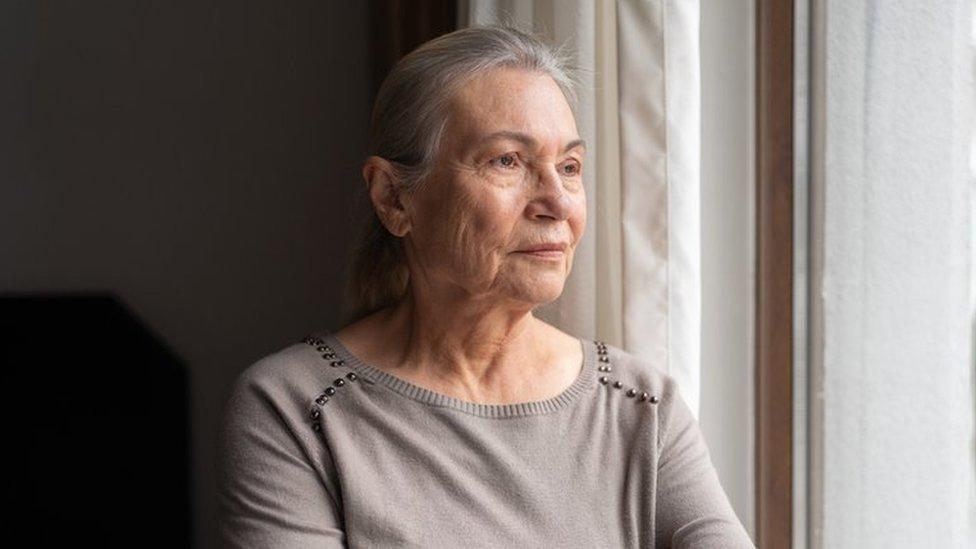Islanders debate assisted dying ahead of vote
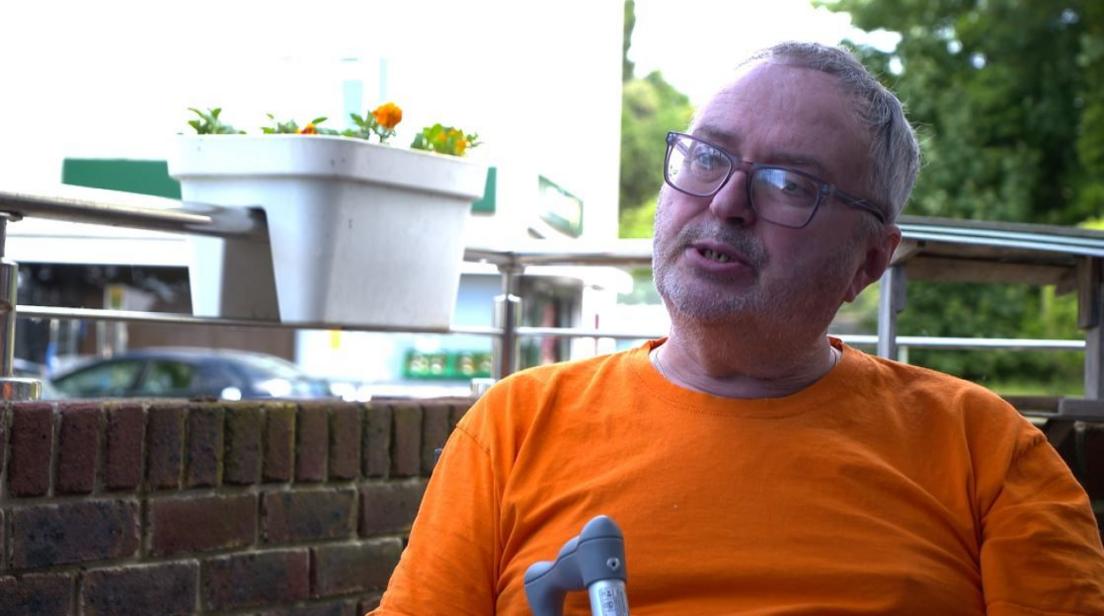
Paul du Four has had long Covid for four years which he said had influenced his views on assisted dying
- Published
Jersey's politicians will be voting on proposals on how assisted dying could work on the island after the principle of legalising it was approved in 2021. Ahead of the debate on Tuesday, BBC News has been speaking to people across the island to find out what they think.
Paul du Four has had long Covid for four years which he said had influenced his views on assisted dying.
"I'm all for it," he said.
"I think people who are terminally ill should be given the choice to go out with a bit of dignity rather than suffer."
The former truck driver said he was now housebound and often found daily tasks exhausting, but was continuing with treatments as he liked to think things could improve.
Two routes proposed
The States Assembly will debate proposals which outline two routes through which those who have lived in Jersey for longer than a year, are 18 or over and have decision-making capacity could apply for assisted dying.
Route one will be for those who have a terminal illness that is causing or is expected to cause unbearable suffering. There must be a reasonable expectation the illness will lead to the person's death within six months, with the time frame extended to 12 months for those with neurodegenerative conditions like Parkinson's disease.
The second is to allow an assisted death for those who are not terminally ill but who have an "incurable physical medical condition that is causing unbearable suffering".
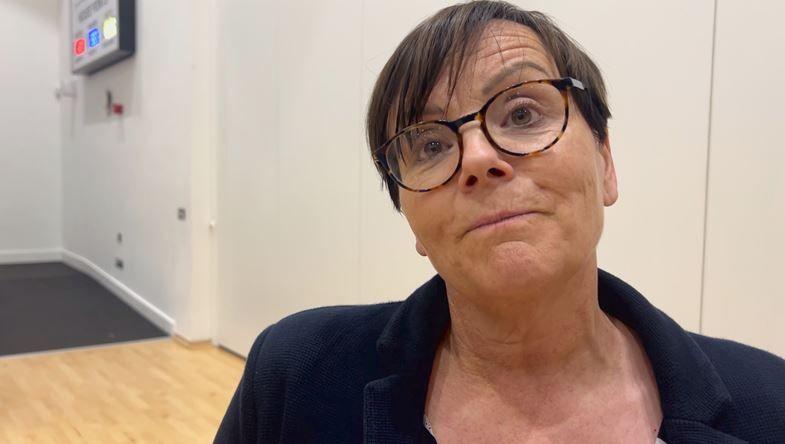
Janine Ingle said she thought it would be a very sad day if the proposals were passed
Information sessions have been held across the island where policy officers have been telling the public more about the proposals.
Janine Ingle attended one at Les Quennevais School.
"I think it will be a very sad day if it's passed... I really do," she said.
"It's just such a difficult decision for a small group of people to make on behalf of the island of Jersey and the future of Jersey."
Ms Ingle said she had concerns about route one as she knew of "many examples of people being given a terminal diagnosis and it's not been".
'Good discussion'
Islander Lorna Pirozzollo, who also went to a meeting, said she hoped route one would go ahead, but wanted there to be a "really good discussion" about route two.
"I know people who are terminally ill now who could really do with route one being in place - sadly it won't be in place for them - it will be nice if it is in place for other people," she said.
"I would like to see a really good discussion on whether or not they go with route two. To know that it has been done based on facts and not the misinformation that is out there.
"I'm not against route two going ahead as long as safeguards are there."
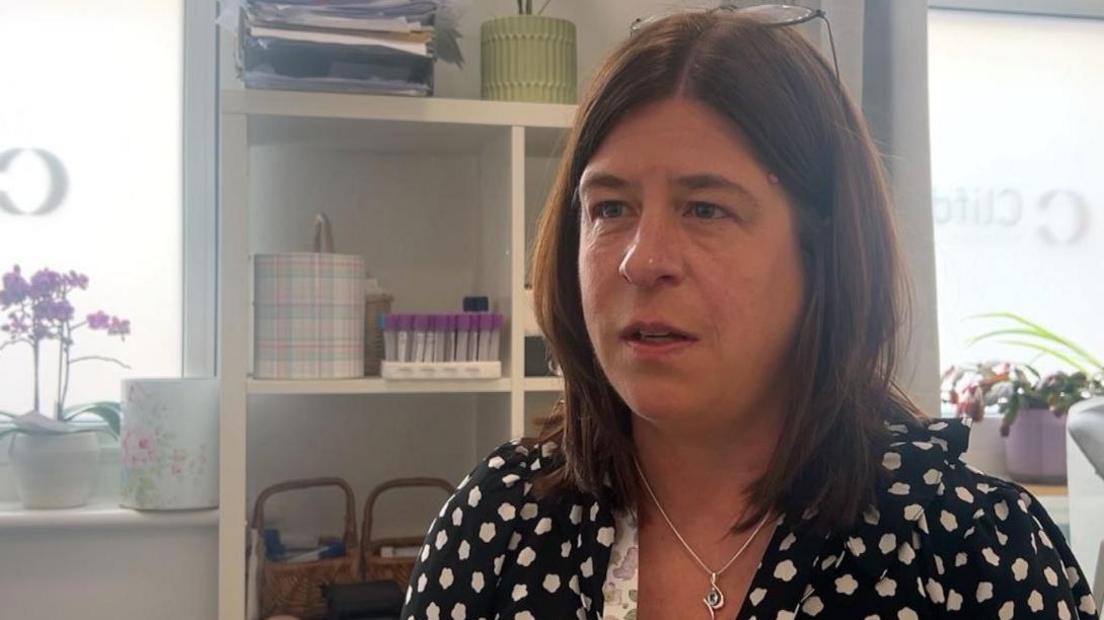
Dr Helen Thomas is concerned it could be a slippery slope if route one is passed
Dr Helen Thomas is part of a group of health care professionals, called Our Duty of Care Jersey, which is opposed to assisted dying.
The GP said even if only route one was passed, she felt it could be a slippery slope.
"I think, as part of society being viewed as compassionate, route one will go through without any further consideration," she said.
"People will then get used to that being the norm... and I think there is a danger that it progresses to include the vulnerable, the disabled and people being coerced into assisted dying and I think that’s very dangerous."
'Introduce safeguards'
But Nathan Stilwell, an assisted dying campaigner from Humanists UK who has been in Jersey speaking to politicians, does not agree.
"It definitely wouldn’t be a slippery slope. What the politicians decide will be what the law is," he said.
"We can look at the law for example in the US state of Oregon that was decided 25 years ago - it's exactly the same now with very small changes.
"So essentially what the politicians choose in Jersey is what the law is going to be."
Mr Stilwell believes the proposals are making it safer for everyone.
"At the moment there aren’t any safeguards," he said.
'Protect vulnerable'
The Jersey Dying Well group, which is against assisted dying, wants to see the continued development of palliative care in Jersey.
Chairman of the group John Stewart-Jones, who is also a former Jersey GP and a founding pastor of the Freedom Church, said he thought the present laws were there to protect vulnerable people.
"The more I’ve looked into it [assisted dying] the more concerned I've become about the societal as well as medical and social effects of such a law coming into place," he said.
Mr Stewart-Jones added: "We can’t just do anything we like. There are laws and rules there for our benefit and I believe the present law is there to protect people who are vulnerable."
He said medicine was "about making it tolerable rather than just accepting it's intolerable or unbearable".
Baroness Ilora Finlay, who is a doctor and professor of palliative medicine, thinks Jersey should be focusing on improving palliative care instead.
"Jersey has a real issue around staffing… because Jersey isn’t recruiting staff it has beds closed," she said.
"You redouble your efforts at care, you don’t take short cuts and end life."
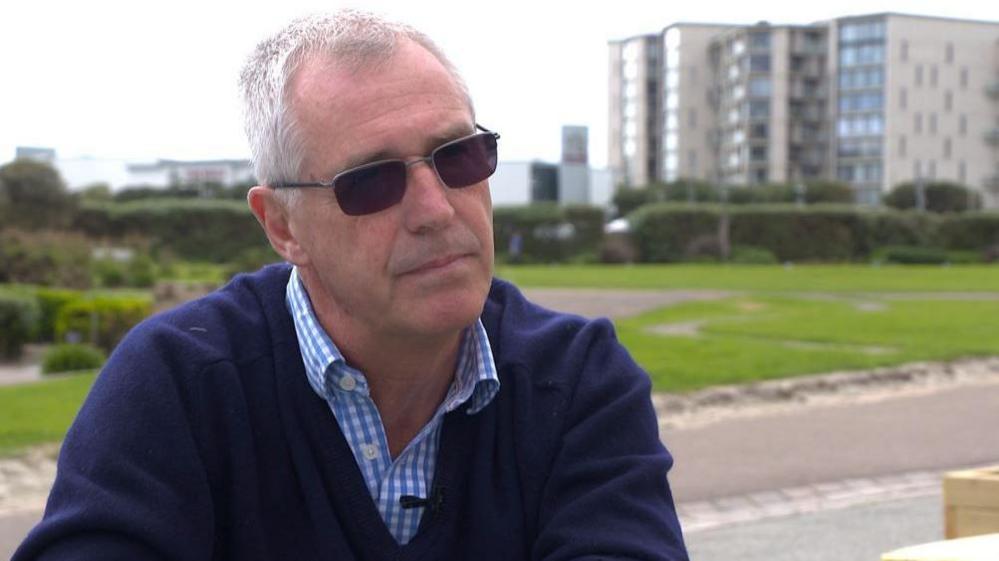
Dr Nigel Minihane said: "Sometimes we want to look after the people we love if we are in the process of dying"
But Dr Nigel Minihane, who is supportive of the proposals and set up the Jersey Assisted Dying Action Group, said it can be about "looking after the people we love if we are in the process of dying".
"If I had, for example, motor neurone disease, would I want my two daughters to watch me diminish in front of them... and that was the lasting memory of their father? I don’t think so," the GP said.
"Sometimes we want to look after the people we love if we are in the process of dying as much as they want to look after us, and this law allows leeway for how people might approach that position."
If the States Assembly votes to approve the plans, a draft law will be prepared which will be debated in November 2025.
Follow BBC Jersey on X (formerly Twitter), external and Facebook, external. Send your story ideas to channel.islands@bbc.co.uk, external.
Related topics
- Published14 May 2024
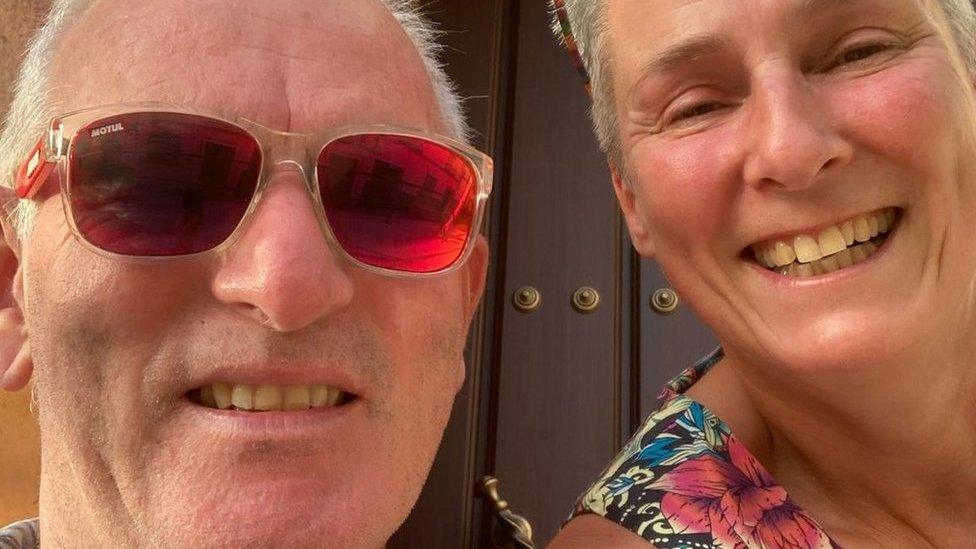
- Published22 March 2024

- Published25 November 2021

